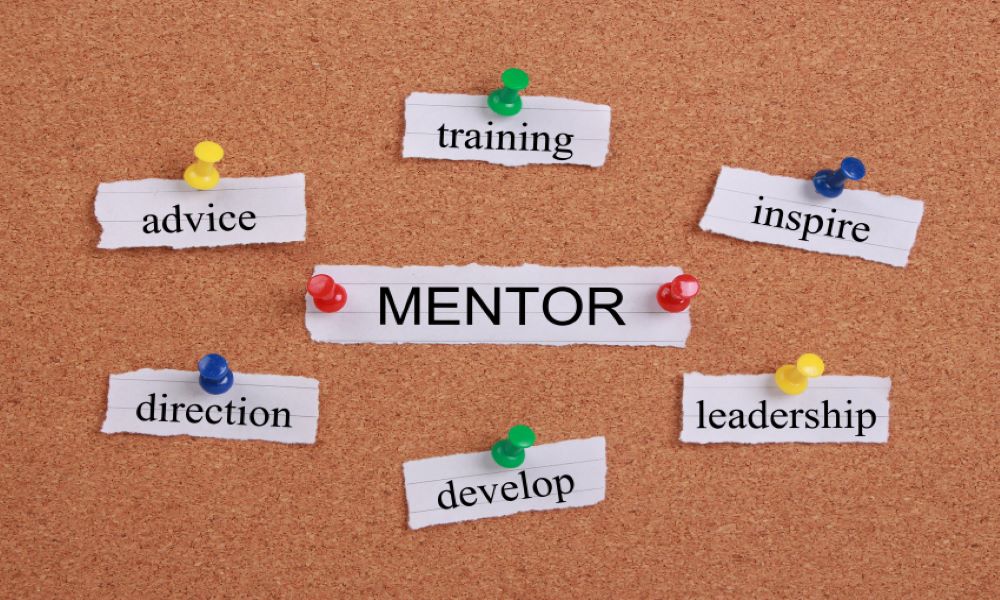 In this post, Dr Somia Imran, a recent PhD graduate in Clinical Psychology and a postgraduate tutor in the School of Health in Social Science (SHSS), shares her experience of being a mentor and a mentee at the same time and the unique perspective it offered to both relationships.
In this post, Dr Somia Imran, a recent PhD graduate in Clinical Psychology and a postgraduate tutor in the School of Health in Social Science (SHSS), shares her experience of being a mentor and a mentee at the same time and the unique perspective it offered to both relationships.
I am a recent PhD graduate in Clinical Psychology from the School of Health in Social Science and a Fellow of Higher Education Academy (FHEA). This blog presents my reflections as the Edinburgh Teaching Award (EdTA) mentor and mentee at the same time while working towards FHEA. In March 2019, I attended the training session for EdTA mentors, which I found very informative as it allowed me to explore key issues related to healthy mentor-mentee relationship. Further, Irby`s reading (2012) helped me understand the distinction between a mentor, advisor and a tutor such as the mentors are not directly involved in assessments like tutors and advisors but provide feedback and relevant support, which I also discussed with my EdTA mentees to set clear expectations for both of us. I also had a chance to meet my AFHEA (Associate Fellow of Higher Education Academy) mentor and decided to keep her as my FHEA mentor too. In this regard, EdTA team indicated some potential challenges such as it is relatively easy to fall into assumptions of knowledge when you know someone but the assessors won’t have that knowledge. To address this, I wrote an introductory blog as part of my FHEA submission, where I introduced my teaching principles, experiences and myself in order to make my further blogs explicit to the content required for my new descriptor/assessors.
Furthermore, being a mentee at the same time gave me a better perspective of what I should do as a mentor; particularly, I followed some strategies of my mentor that I found helpful. For example, my mentor asked me to send her a timeline in the beginning, which helped me set some self-imposed deadlines. I was very clear about my mentor`s availability, which ended up into a goal-oriented and trust-worthy mentor-mentee relationship. Therefore, in my first meeting with my mentees, after a getting-to-know-you session (Byington, 2010) I did the same as well as gave my mentees a list of useful tips; in particular, how to manage EdTA while doing a PhD. For instance, I suggested them to write blogs during teaching breaks and/or while waiting for the supervisor`s feedback on the PhD stuff. I encouraged them to keep a diary of their experiences as per their EdTA descriptor soon after doing/involving in any teaching or CPD (Continuing Professional Development) activity, which we used to discuss through emails and Skype meetings. I was aware that my mentees might have different requirements from me or might have different requirements from one meeting to the next so I encouraged them to let me know ahead of meetings if they would like to add something as per their needs throughout the mentoring journey.
However, it seemed challenging when one of my mentees and I both were about to submit our EdTA applications together but since she was working towards a lower category (AFHEA) and things were not piled up in the end as we were in regular contact helped me overcome this challenge. In the end, my mentees appreciated my thoughtfulness, level of involvement, constructive feedback and prompt responsiveness.
Finally, being a mentor, I was also aware of the time constraints within a mentor-mentee relationship so I tried to give enough time to my mentor to give me feedback on my EdTA blogs etc. Overall, I found mentoring to be very enlightening, as it enabled me to provide support and guidance for someone`s professional development in relation to the UKPSF (UK Professional Standards Framework) and helped me develop my mentoring skills. For the future, I am keen to mentor more mentees and find Huizing`s (2012) “many-to-many” mentoring concept, consisting of a group with multiple mentors and mentees, very fascinating.
References
Byington, T. (2010). Keys to successful mentoring relationships. Journal of Extension, 48(6), 1- 4.
Huizing, R. L. (2012). Mentoring together: A literature review of group mentoring. Mentoring & Tutoring: Partnerships in Learning, 20(1), 27-55.
Irby, B. J. (2012). Editor’s overview: Mentoring, tutoring, and coaching. Mentoring & Tutoring: Partnership in Learning, 20(3), 297–301.

 Somia Imran
Somia Imran
Excellent blog post!